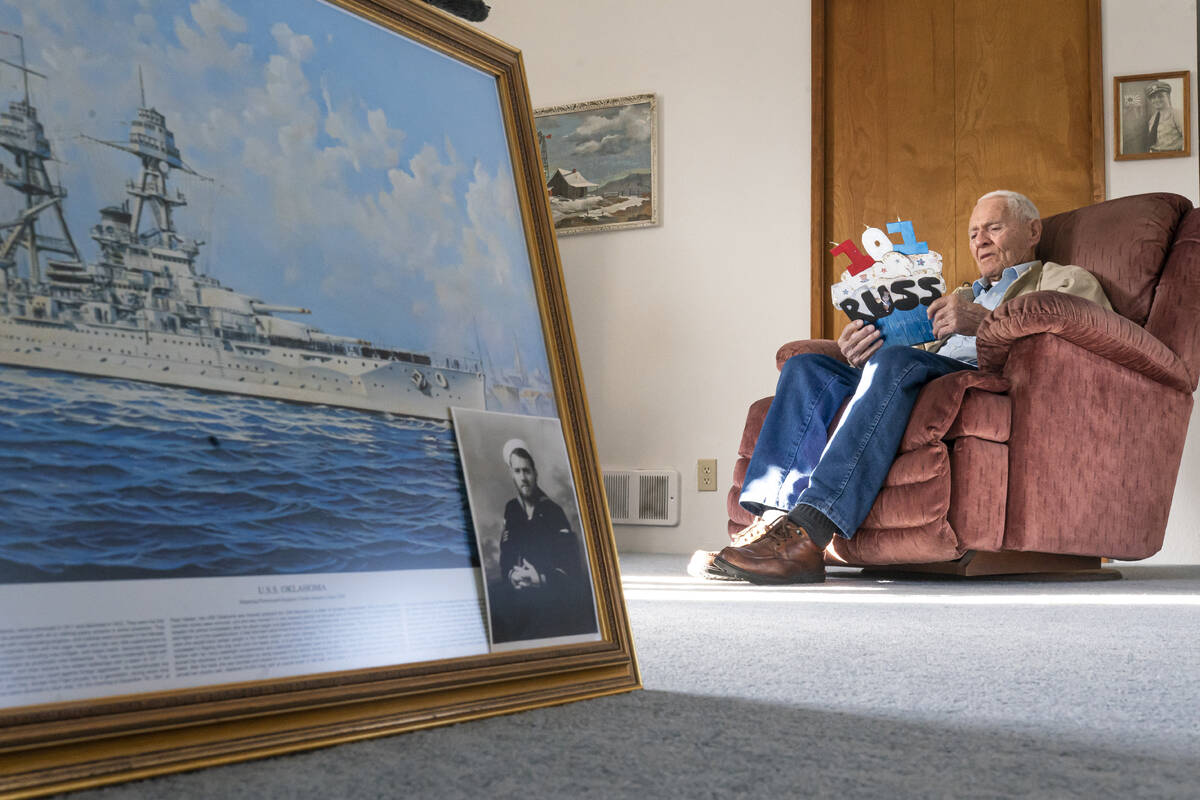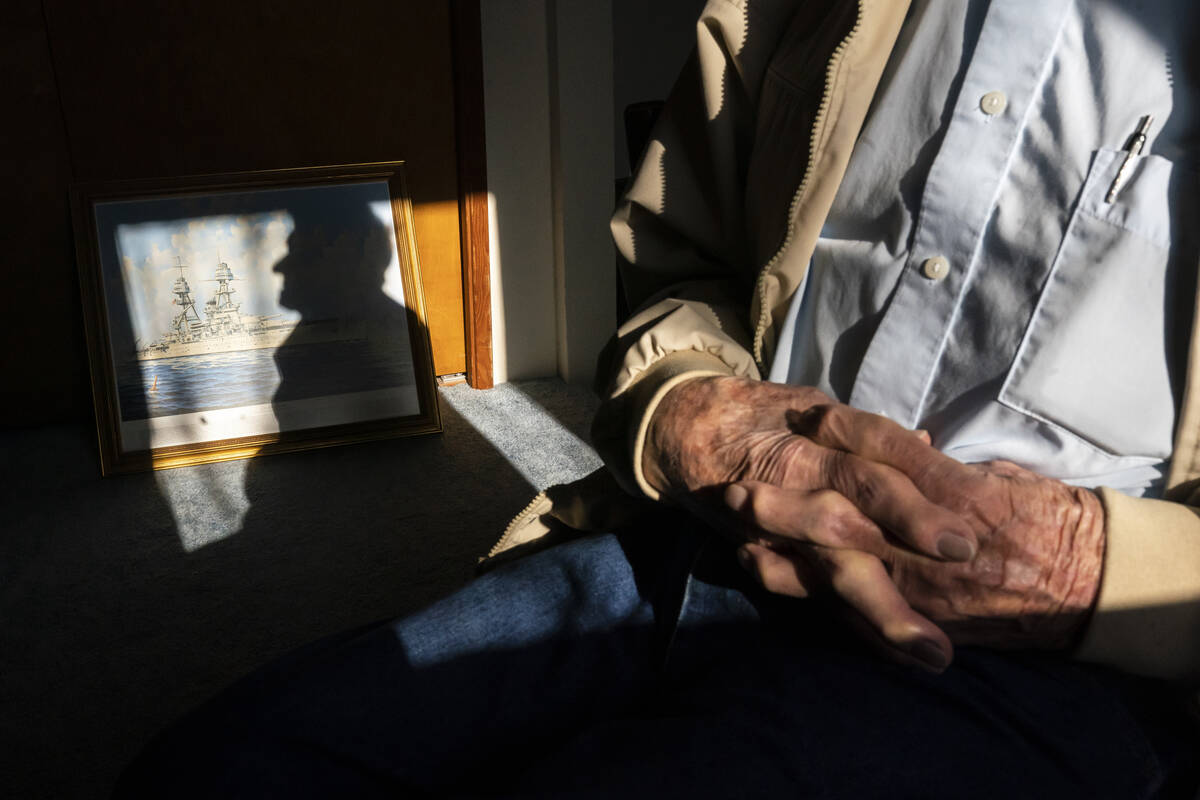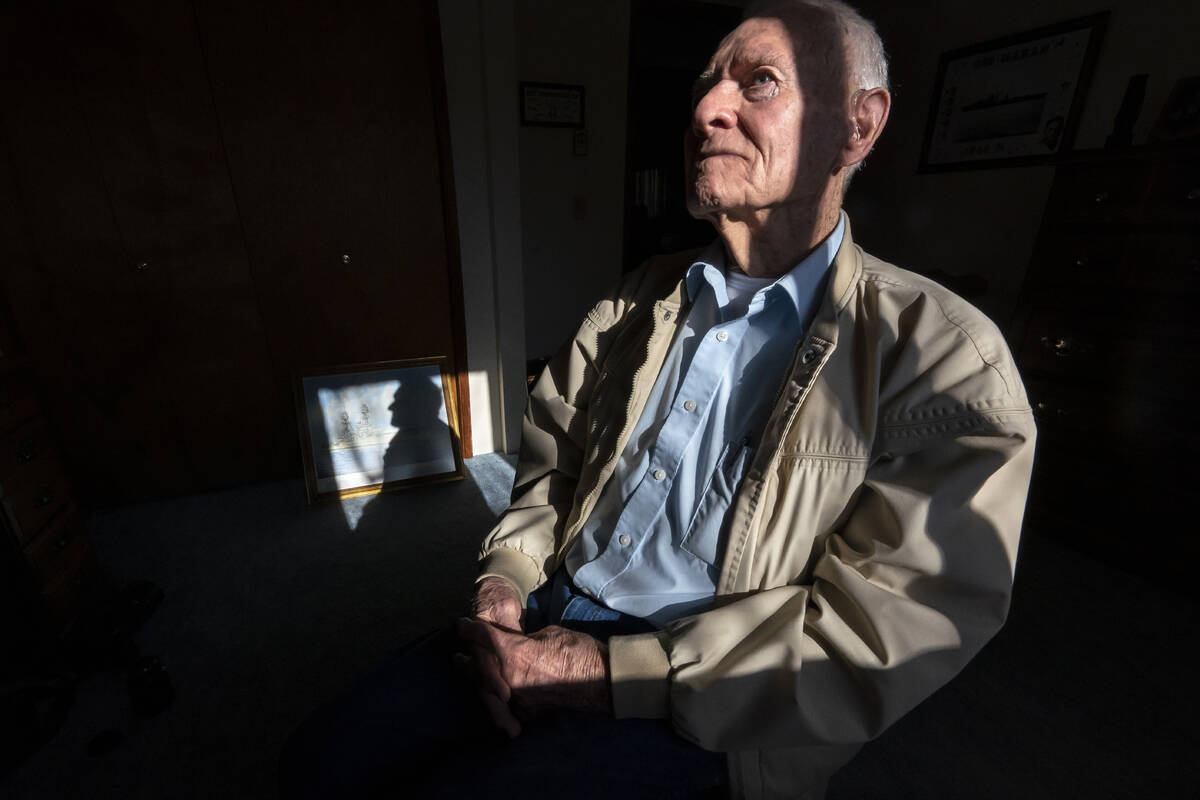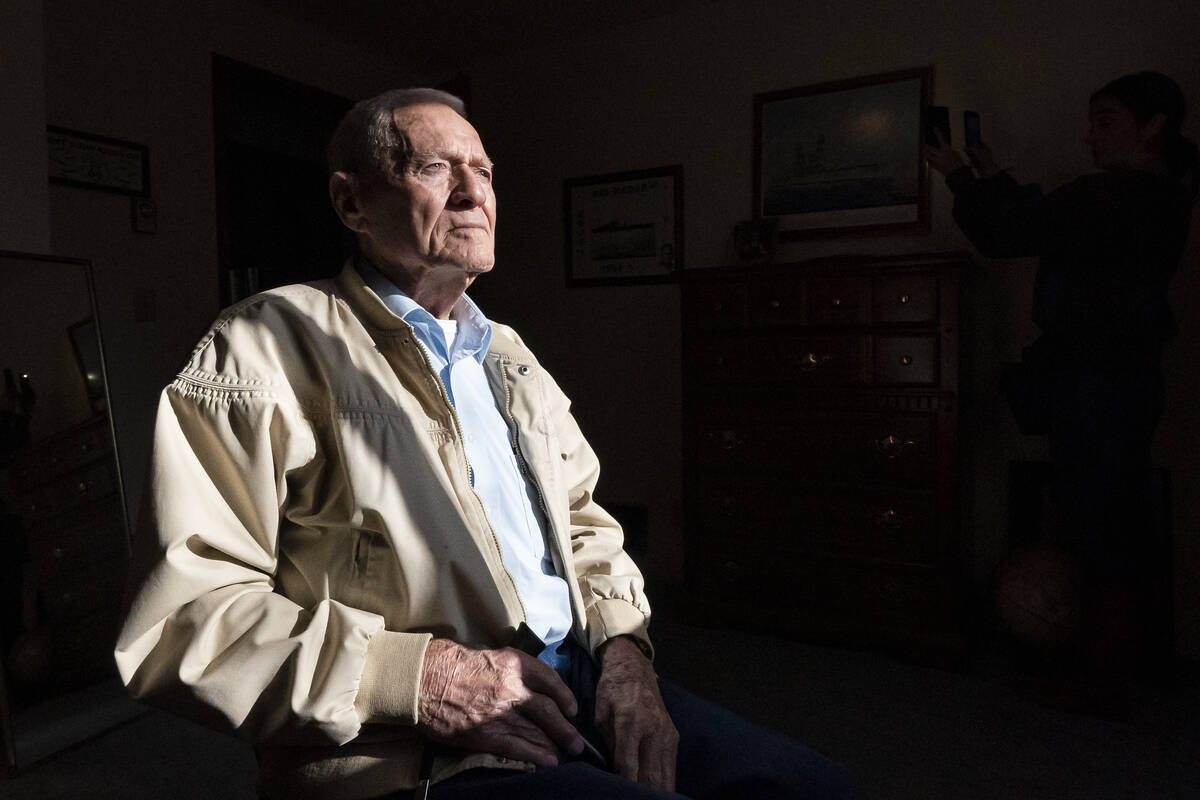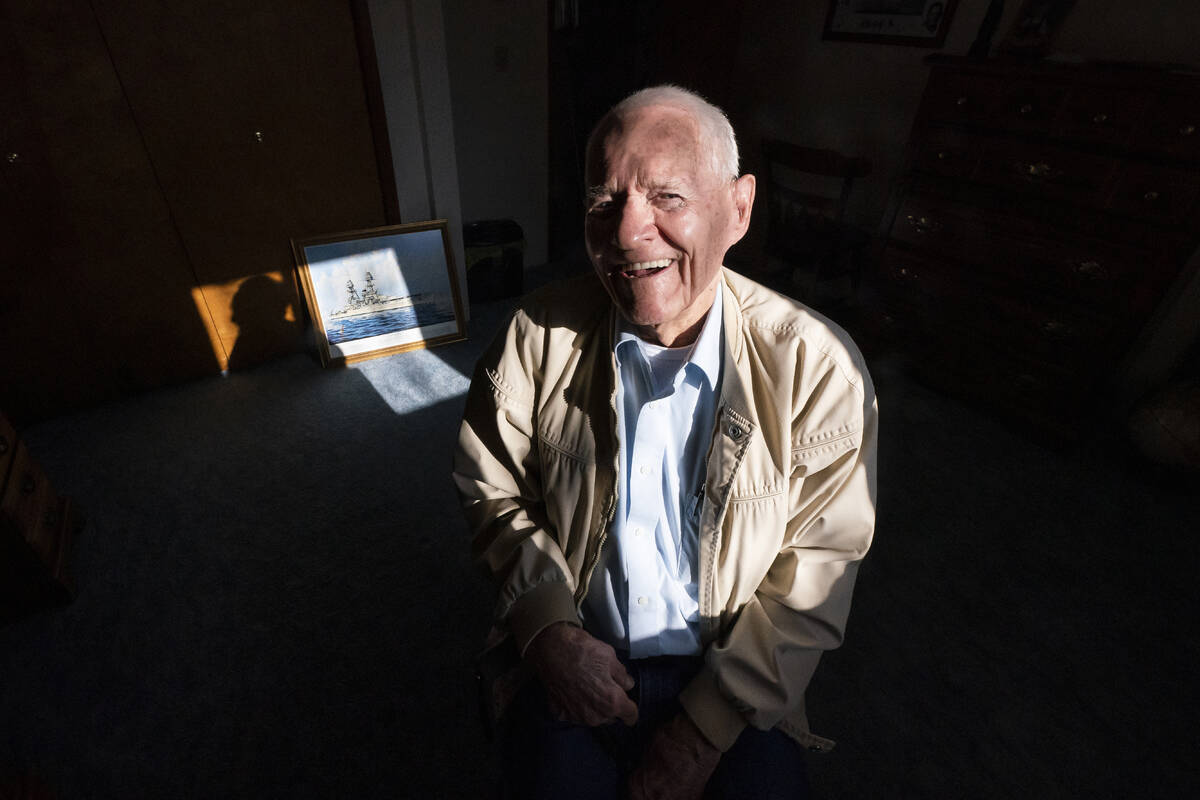101-year-old returns to Pearl Harbor to remember those lost
HONOLULU — When Japanese bombs began falling on Pearl Harbor, U.S. Navy Seaman 1st Class David Russell first sought refuge below deck on the USS Oklahoma.
But a split-second decision on that December morning 80 years ago changed his mind, and likely saved his life.
“They started closing that hatch. And I decided to get out of there,” Russell, now 101, said in a recent interview.
Within 12 minutes his battleship would capsize under a barrage of torpedoes. Altogether 429 sailors and Marines from the Oklahoma would perish — the greatest death toll from any ship that day other than the USS Arizona, which lost 1,177.
Russell plans to return to Pearl Harbor on Tuesday for a ceremony in remembrance of the more than 2,300 American troops killed in the Dec. 7, 1941, attack that launched the U.S. into World War II.
About 30 survivors and 100 other veterans from the war are expected to observe a moment of silence at 7:55 a.m., the minute the attack began.
Survivors, now in their late 90s or older, stayed home last year due to the coronavirus pandemic and watched a livestream of the event instead.
Russell is traveling to Hawaii with the Best Defense Foundation, a nonprofit founded by former NFL Linebacker Donnie Edwards that helps World War II veterans revisit their old battlefields.
He recalls heading topside when the attack started because he was trained to load anti-aircraft guns and figured he could help if any other loader got hurt.
But Japanese torpedo planes dropped a series of underwater missiles that pummeled the Oklahoma before he could get there. Within 12 minutes, the hulking battleship capsized.
“Those darn torpedoes, they just kept hitting us and kept hitting us. I thought they’d never stop,” Russell said. “That ship was dancing around.”
Russell clambered over and around toppled lockers while the battleship slowly rolled over.
“You had to walk sort of sideways,” he said.
Once he got to the main deck, he crawled over the ship’s side and eyed the USS Maryland moored next door. He didn’t want to swim because leaked oil was burning in the water below. Jumping, he caught a rope hanging from the Maryland and escaped to that battleship without injury.
He then helped pass ammunition to the Maryland’s anti-aircraft guns.
After the battle, Russell and two others went to Ford Island, next to where the battleships were moored, in search of a bathroom. A dispensary and enlisted quarters there had turned into a triage center and place of refuge for hundreds of wounded, and they found horribly burned sailors lining the walls. Many would die in the hours and days ahead.
“Most of them wanted a cigarette, and I didn’t smoke at that time but I, uh, I got a pack of cigarettes and some matches, and I lit their cigarettes for them,” Russell said. “You feel for those guys, but I couldn’t do anything. Just light a cigarette for ‘em and let ‘em puff the cigarettes.”
Russell still thinks about how lucky he was. He ponders why he decided to go topside on the Oklahoma, knowing most of the men who stayed behind likely were unable to get out after the hatch closed.
In the first two days after the bombing, a civilian crew from the Pearl Harbor Naval Shipyard rescued 32 men trapped inside the Oklahoma by cutting holes in its hull. But many others perished. Most of those who died were buried in anonymous Honolulu graves marked as “unknowns” because their remains were too degraded to be identified by the time they were removed from the ship between 1942 and 1944.
In 2015, the Defense POW/MIA Accounting Agency exhumed 388 sets of these remains in hopes of identifying them with the help of DNA technology and dental records. They succeeded with 361.
Russell’s brother-in-law was among them. Fireman 1st Class Walter “Boone” Rogers was in the fireroom, which got hit by torpedoes, Russell said. The military identified his remains in 2017, and he’s since been reburied at Arlington National Cemetery.
Russell remained in the Navy until retiring in 1960. He worked at Air Force bases for the next two decades and retired for good in 1980.
His wife, Violet, passed away 22 years ago, and he now lives alone in Albany, Oregon. He drives himself to the grocery store and the local American Legion post in a black Ford Explorer while listening to polka music at top volume. When he’s not hanging out with other veterans at the legion, he reads military history and watches TV. He keeps a stack of 500-piece puzzles to keep his mind sharp.
For decades, Russell didn’t share much about his experiences in World War II because no one seemed to care. But the images from Pearl Harbor still haunt him, especially at night.
“When I was in the VA hospital there in San Francisco, they said, ‘We want you to talk about World War II.’ And I said, I told them, I said, ‘When we talk about it, people don’t believe us. They just walk away.’ So now people want to know more about it so we’re trying to talk about it. We’re trying to talk about it, and we’re just telling them what we saw,” he said. “You can’t forget it.”



